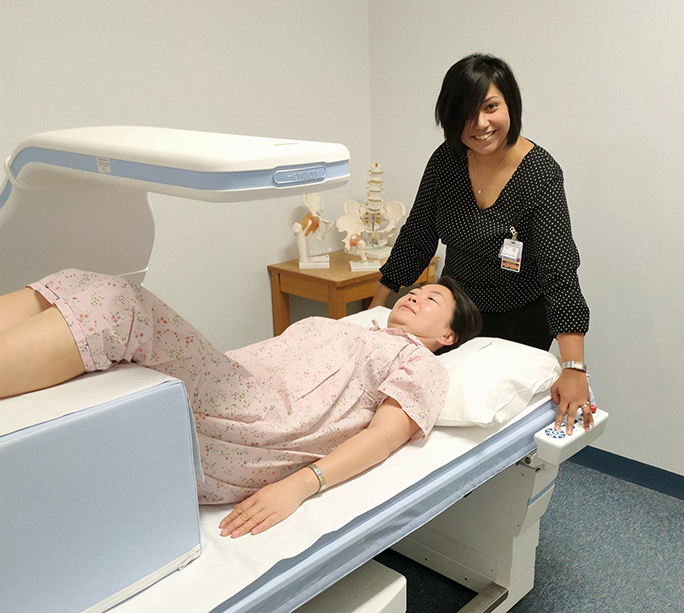It’s World Osteoporosis Day – 20 October

The small team of eleven at Gairdner Bone Density has been looking at the WA community’s bones since 1986, conducting around 400 tests per month with their state-of-art Hologic DXA machines.
Led by a specialist team with expertise in Endocrinology or Geriatrics, the consultants are experienced in osteoporosis management and understand the needs of patients and referring doctors.
"Osteoporosis and fractures can be prevented if action is taken early," said Dr John Walsh, endocrinologist and Chair of Bone Density Operating Committee said.
“Exercise regularly, consume a diet that is rich in bone-healthy nutrients such as calcium and protein to help keep your bones strong.
“Maintain sufficient vitamin D status and a healthy body weight, avoid smoking and excessive drinking, and in women, consider HRT at menopause.”
If you are over the age of 50 and you have risk factors such as previous fractures from a minor incident, early menopause (in women), low testosterone (in men), or other risks including malabsorption or thyroid conditions you should discuss with your doctor and ask for an assessment of your bone health status.
“Bone density is a simple scan that is quick and painless; you simply lie on a flat padded table, the arm of the machine passes over your body and the whole test takes approximately 10 - 15 minutes,” said Dr Walsh.
Patients are referred by hospital clinics, GPs and specialists as well as for research studies. Its important to get tested and treated if needed to prevent osteoporotic fractures so ask your GP or specialist if this is something that they would recommend for you.

